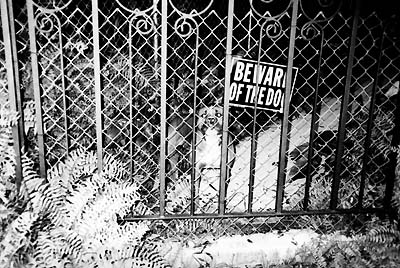It would be comical, if it were not so pathetic, to observe the educated idiots from the finance and legal segments of state governments, as they attempt to deal with tobacco. Recently, a downstate Illinois court awarded a large judgement to a plaintiff against Phillip Morris. But the real stinger here was that to appeal the finding, the court ruled that PM had to post a $12 billion bond, which was cheered by our brilliant States Attorney, Lisa Madigan. PM responded that they would face bankruptcy, which the mental pygmies zolpidemsleep then derided as nonsense, until PM said they would miss their next payment in the tobacco settlement. It then occured to everyone, particularly municipal bondholders, that the states, as a result of the tobacco settlements, were de facto owners of the very companies that they claim are killing their constituents. Unfortunately, they have figured all that filthy lucre into their flagging budgets. For my buck, this is more entertaining than most of what Hollywood churns out. BTW, there is a good editorial about this in today’s Wall Street Journal.
Sorry to revert to the war topic, but. . .
Sorry to revert to the war topic, but I attended a presentation at a local religious institution last night where the topic was “Principles of a Just War”. I actually stayed until it was over, but only through the exercise of extreme self control. I mentally tied myself into my chair, and nearly broke the ropes when the host related the following story: While travelling in Baghdad as part of a religious entourage, he toured an elementary school, where a young girl tugged on his sleeve and asked “Father, why does the United States President want to kill Iraqi children?” I have been given a fresh perspective on the situation now. I now know that all of the ills of Iraq are a direct result and full fault of the United States. The Iraqi regime is actually a benevolent, caring one, despite being beseiged by 12 years of filthy sanctions. I am happy that someone was finally able to straighten me out.
Cause for Optimism
Fearless Leader is apparently still indisposed and couldn’t make it to the studio to deliver his big patriotic speech. That’s almost everything you need to know, right there. After all the hype, the event consisted of a flunky reading “Saddam’s statement” on live TV. Now these guys look even more doomed and desperate than they did before. No wonder the stock market rallied. I know that we’re supposed to be aware of the fog of war (not to mention the fog of media), and cautious in our predictions, but could it be that the Iraqi regime will collapse sooner than we expected?
Hello
Hello all, allow me to introduce myself. My name is Andy Bizub, I am coming to you live from Chicago, where I met Jonathan several years ago. He had gone temporarily insane, and moved to Chicago rather than stay in cold dreary Florida. Since so many are exhausted with the war talk, let me throw out an interesting little local story. As you may or may not know, Chicago has, or rather, HAD a small lakefront landing strip named Meigs Field, mostly used by small commuter craft. Our Honorable mayor daley has wanted to shut this facility for years, and battled with various groups to do so, with no success. Well, seems as though he just got tired of working within the system, so last night, under cover of darkness, he sent in city crews to literally chop up the concrete runway, thereby destroying the facility, with airplanes still parked on the tarmac. (These planes are now stranded there, I don’t think this occurred to them.) For those of you not intimately familar with my fair city, this is how we do things up here, so WATCH IT!
